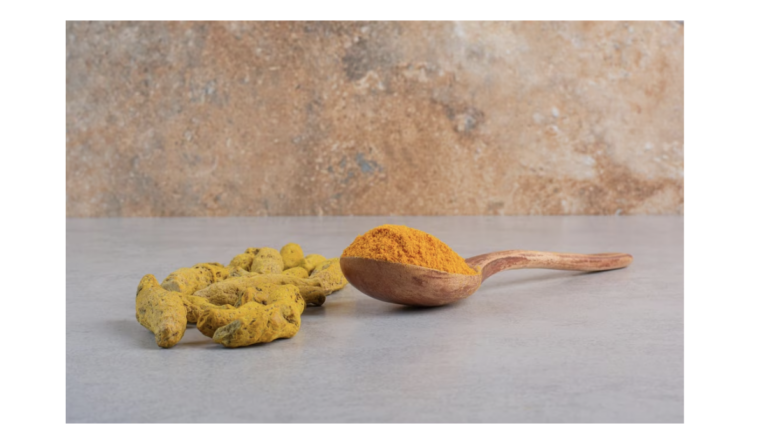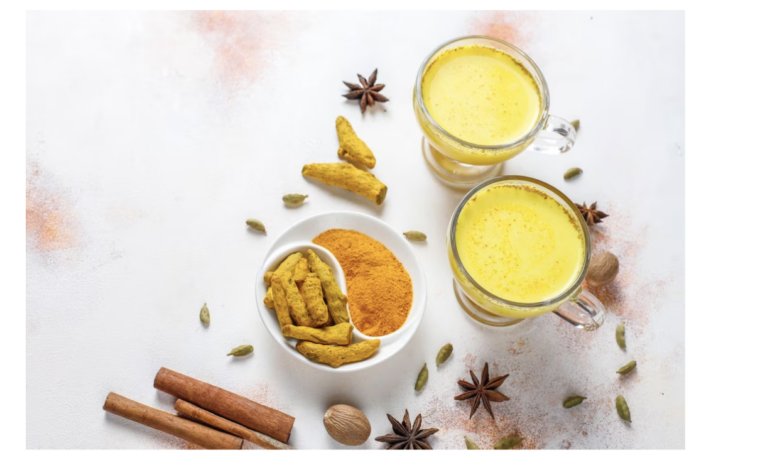Turmeric’s Secret Weapon: Curcumin Explained

The health and wellness industry has recently been buzzing with excitement over turmeric and its potential advantages. This golden spice, which is frequently used in Indian cooking, is widely known for helping to promote general health and vigor. A powerful substance known as curcumin is at the core of turmeric’s incredible health benefits. In fact, when seeking the best curcumin supplement, we will go further into the world of curcumin in this blog article, learning about its history, health advantages, and the science that underlies its extraordinary potency.
The Origins of Turmeric and Curcumin
The flowering plant turmeric (Curcuma longa), a member of the ginger family, is indigenous to South Asia. The brilliant yellow powder we know as turmeric is made by harvesting, drying, and grinding the plant’s rhizomes, or subterranean stems. For thousands of years, this spice has been an essential component of Indian traditional medicine and food.
Curcumin is turmeric’s covert weapon. Turmeric’s vibrant color and the majority of its health advantages are a result of the bioactive component curcumin. It is a polyphenol with potent antioxidant and anti-inflammatory properties, making it a hot topic of study and interest in the fields of nutrition and health.
The Health Benefits of Curcumin
- Anti-Inflammatory Properties: It is thought that chronic inflammation is a major factor in the development of many contemporary diseases, such as cancer, heart disease, and neurological illnesses like Alzheimer’s. Inflammation can be reduced at the molecular level with the aid of curcumin, which has been proven to suppress the activity of inflammatory molecules and pathways.
- Potent Antioxidant: Oxidative stress, which is brought on by an imbalance between the body’s antioxidants and free radicals, can cause cellular damage and be a factor in a number of diseases. Strong antioxidant curcumin neutralizes free radicals, lowering oxidative stress, and promoting general health.
- Pain Relief: Curcumin is frequently used as a natural pain reliever. Its anti-inflammatory characteristics can aid in reducing pain and discomfort in illnesses like arthritis.
- Brain Health: Curcumin may have neuroprotective properties and the capacity to enhance cognitive performance. According to certain research, it may be able to slow down or even stop the progression of brain disorders and age-related cognitive decline.
- Heart Health: By enhancing the performance of the endothelium, the lining of blood vessels, curcumin has been linked to improved heart health. Through the reduction of oxidative stress and inflammation, it may also lower the risk of heart disease.
- Cancer Prevention: Although further studies are required, some research has suggested that curcumin may slow the growth of cancer cells and stop the spread of tumors. Its anti-oxidant qualities might possibly aid in the prevention of cancer.
- Digestive Disorders: Curcumin has historically been used to promote healthy digestion and treat digestive issues. It can aid in the treatment of conditions like irritable bowel syndrome (IBS) and dyspepsia.
- Weight Management: According to some research, curcumin may help people manage their weight by regulating their metabolism and lowering inflammation in their fat tissues.
- Skin Health: The anti-inflammatory and antioxidant effects of curcumin may help treat skin disorders like eczema, psoriasis, and acne.
- Antibacterial and Antiviral: Curcumin has shown antibacterial and antiviral effects, which may support immune system function and assist fight infections.
The Science Behind Curcumin’s Power
The extraordinary variety of health advantages of curcumin has inspired in-depth scientific research. Its mechanisms of action and interactions with numerous biological pathways have been studied by researchers.
The capacity of curcumin to control inflammation is one of its important characteristics. By preventing the chemicals and pathways that cause inflammation in the body, it achieves this. Curcumin, for example, inhibits the NF-kappaB pathway, which is a key regulator of inflammation.
Antioxidant qualities of curcumin are also important. By neutralizing dangerous free radicals, it stops them from harming cells and tissues. In order to lower the risk of chronic diseases and aging-related problems, this antioxidant defense is essential.
Curcumin has also been demonstrated to increase the brain’s ability to produce BDNF, a growth hormone with specific brain activities. For optimal cognitive performance and overall brain health, neurons must be formed and maintained, which is where BDNF comes into play.
The ability of curcumin to enhance endothelial function is related to its potential advantages for heart health. Curcumin may contribute to better cardiovascular health and a lower risk of heart disease by improving the function of blood vessel linings.
Despite these encouraging results, there is a problem with curcumin absorption. Curcumin is not well absorbed by the body on its own. Consuming it along with black pepper, which has piperine, might dramatically increase absorption. To increase the effects of curcumin, several pills also contain piperine.
How to Include Curcumin in Your Diet

You can add turmeric to your diet or think about taking curcumin supplements if you’re interested in taking advantage of curcumin’s possible health advantages. Here are a few techniques to do it:
- Turmeric Spice: Include turmeric in your recipes. It may be included into a wide range of meals, including soups, stews, curries, and smoothies. Be inventive and try out various recipes to find your preferred preparation method.
- Turmeric Tea: Boil turmeric powder or fresh turmeric slices in water to make a calming cup of tea. A squeeze of lemon, ginger, and honey can all be used to improve the flavor.
- Supplements: If it’s difficult for you to get enough turmeric through diet alone, think about taking supplements with curcumin. Before beginning a new supplement regimen, always seek medical advice, especially if you are already on medication or have underlying health issues.
Cautions and Considerations
Although curcumin has a wide range of possible health advantages, it’s crucial to approach its ingestion with some caution:
- Dosage: There is no one dosage for curcumin that works for everyone. It differs based on personal circumstances and health objectives. The ideal dosage for your unique needs can be determined by speaking with a medical professional or dietitian.
- Interactions: Curcumin may interact with some medicines, including blood thinners and diabetes treatments. Before incorporating curcumin into your routine if you take medication, speak with your doctor.
- Quality: Pick high-quality supplements from reliable brands when making your selection. Look for supplements that contain piperine or other substances that improve absorption.
- Allergies: Turmeric may cause allergies in certain people. Stop using and get medical help if you have any negative effects, such as swelling, itching, or breathing difficulties.
Conclusion
The hidden powerhouse in turmeric, curcumin, has amazing potential to improve our health and wellbeing. It stands out among natural treatments due to its anti-inflammatory, antioxidant, and various other health-promoting characteristics. While there are curcumin pills on the market, including turmeric in your diet by way of cooking or drinking turmeric tea is a tasty and useful approach to reap its advantages.
It’s important to speak with a healthcare provider before making any dietary or nutritional changes, especially if you have underlying medical issues or are taking medication. Although curcumin is not a miracle drug, it is unquestionably a helpful addition to a healthy and balanced lifestyle and a potent ally in the pursuit of optimal wellbeing.
